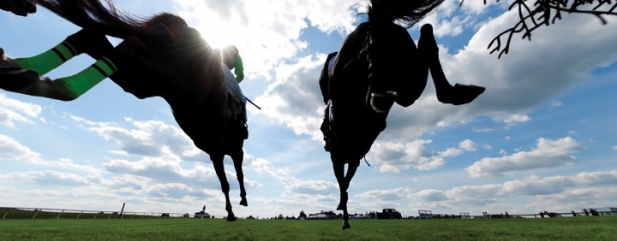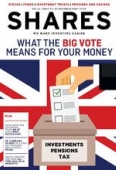Archived article
Please note that tax, investment, pension and ISA rules can change and the information and any views contained in this article may now be inaccurate.
UK gambling shares in a spin on tougher regulation fears

A cross-party group of politicians calling themselves the All-Party Parliamentary Group (AAPG), focused on gambling-related harm, has released a report which set alarm bells ringing in the gambling sector. The group is agitating for further reform, targeting stricter online restrictions.
Shares in the sector fell sharply on the news with William Hill (WMH) falling 12%, 888 (888) down 10%, GVC (GVC) dropping 9% and Flutter Entertainment (FLTR) taking a 3% hit.
The recommendations of the report include a £2 stake limit on online slot machines, mirroring the reduction of fixed-odds betting terminals which came into force earlier this year, as well as blocking online credit card funding and restrictions on VIP accounts.
Labour’s Caroline Harris, who led the AAPG report along with ex-Conservative leader Iain Duncan Smith, singled-out the Gambling Commission by saying that it was not ‘fit for purpose’ in the age of internet gambling and required more ‘teeth’ to sanction companies.
The report also recommends removing cash machines inside casinos, bingo clubs and amusement arcades.
Broker Canaccord Genuity believes the timing of the report’s publication five weeks before a general election appears ‘politically expedient’.
According to research by professors David Forrest and Ian McHale, around 30% of online slot play involves stakes above the £2 to £5 bracket and is therefore at risk.
Consultancy Regulus Partners estimates that overall sector ‘at risk’ revenue is approximately 5% to 10%, with slots-led gaming operators potentially being impacted by up to 30%.
However the profit impact is much worse because slots happen to be a very profitable segment with around 65% profit contribution before marketing costs. Using current industry revenues, this suggests around half of the industry’s earnings before interest, tax, depreciation and amortisation (EBITDA) is at risk, and 30% will be lost according to Regulus Partners.
The industry has made progress to reform its practices on harm mitigation and is putting increasing funds into social causes in order to tackle the darker side of gambling.
According to Canaccord analysts the latest Gambling Commission data reported a significant decline in moderate risk gambling rates which doesn’t suggest the need for greater regulation. In addition, it is difficult to see how lost tax revenues from a reduction in online stakes could be replaced.
That said, gambling will probably feature in the Labour Party’s election manifesto and the Liberal Democrats and the SNP may include something similar. Even a Conservative government might be sympathetic to the wider social issues. Therefore the industry needs a strong response, backed-up with data and hard evidence supporting the claimed improvements to consumer outcomes.
Important information:
These articles are provided by Shares magazine which is published by AJ Bell Media, a part of AJ Bell. Shares is not written by AJ Bell.
Shares is provided for your general information and use and is not a personal recommendation to invest. It is not intended to be relied upon by you in making or not making any investment decisions. The investments referred to in these articles will not be suitable for all investors. If in doubt please seek appropriate independent financial advice.
Investors acting on the information in these articles do so at their own risk and AJ Bell Media and its staff do not accept liability for losses suffered by investors as a result of their investment decisions.

 magazine
magazine









